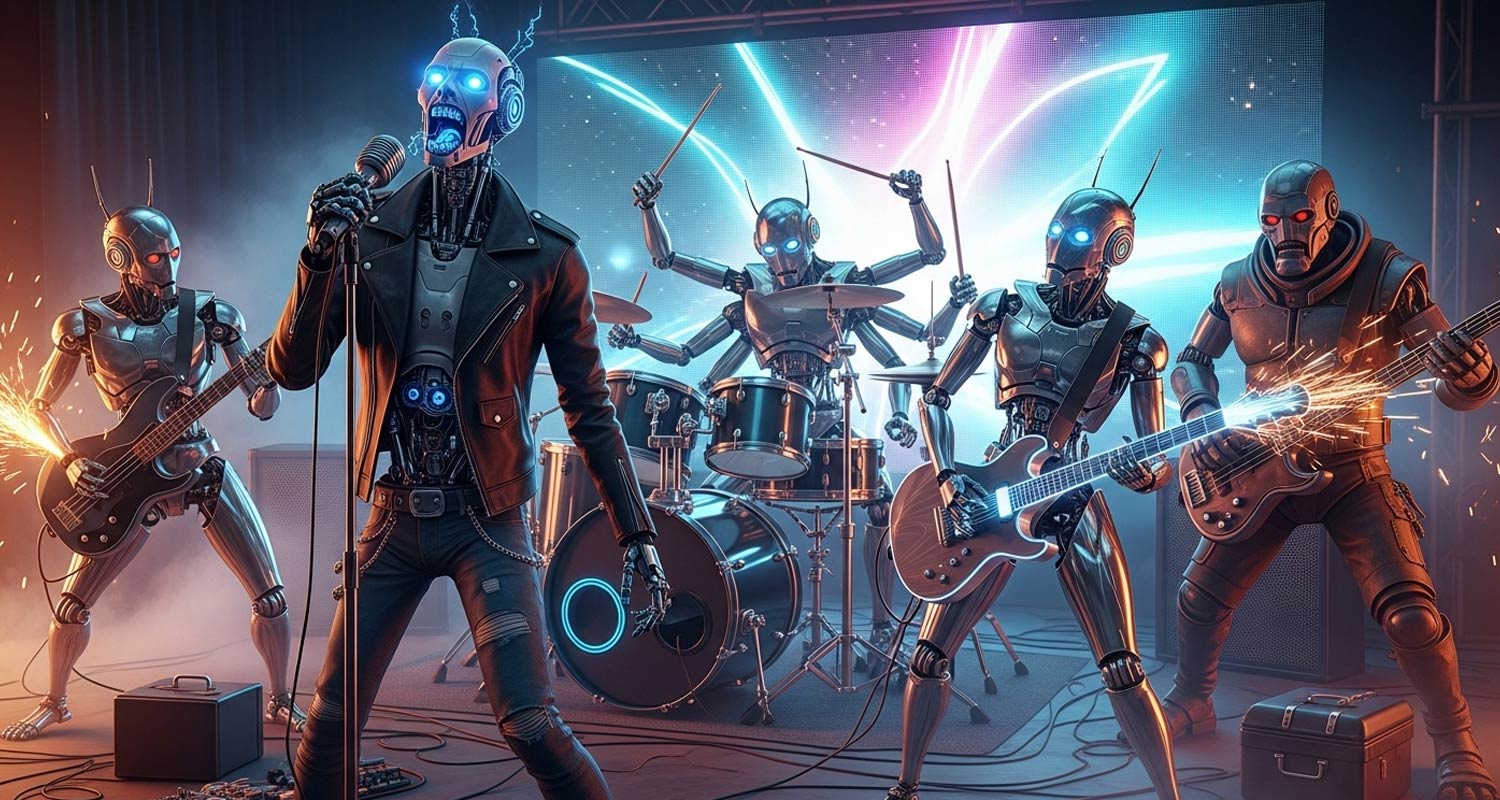The music industry took years to recover financially from the impact of the disruptive technology of peer-to-peer file sharing driven by Napster. It again finds itself at a critical junction – this time over how it navigates the terrain presented by generative artificial intelligence.
A new paper by music industry veteran Charles Goldstuck argues that if copyright law, case law and public policy do not evolve to accommodate the structural changes posed by AI-generated music, the creative economy will be absorbed into a murky, unregulated system. Ultimately, this will significantly devalue human authorship.
In the document, published on the Social Science Research Network, Goldstuck, who supports Wits University’s AI & African Music project, said that AI should not be resisted. Instead, the industry should ensure that it evolves within a multi-stakeholder governance framework that protects creative labour, enables innovation and scales with the velocity of the disruption.
“AI services and human content creators must coexist and both be allowed to thrive,” he said in the paper titled, “Past, precedent, future proof: towards a new legal and commercial framework for AI-generated music”.
He believes that in a world where the pace of technological development vastly outpaces the speed of both judicial and legislative actions, the only mutually beneficial path forward is for the music industry and AI platforms to resort to negotiated settlements and collaboratively develop new licensing agreements.
After the Napster era, which saw recorded revenue streams fall around 40% over 15 years, there was a recovery due to streaming services powered by adaptive AI like Spotify and YouTube. According to Music Business Worldwide, over 100 000 songs are downloaded daily on Spotify alone.
Very different challenge
Goldstuck highlights that this technological evolution was built in cooperation with rightsholders where machine learning supported rather than replaced human authorship. Also, adaptive AI tracked rather than circumvented copyright frameworks.
But today the industry faces a very different challenge. Generative AI models do not only distribute music; they create it using large-scale ingestion of copyrighted works to produce new audio, melodies, lyrics and vocal likenesses.
In the US alone, there are dozens of cases in court dealing with generative AI and its impact on the music industry.
Read: EU wants copyright rules for generative AI
Goldstuck said that while it is too early to predict who will prevail in court, indications so far pointed to judges moving away from rigid copyright protections that characterised the Napster. They are far more likely to “balance the transformative potential of new technologies against traditional copyright monopolies”.
Another important point is that these kinds of cases drag out in court for years. The average copyright lawsuit demands many years and millions of dollars to litigate.
 One of the most prominent examples is the case between global entertainment content company Viacom and YouTube, in which Google alone incurred more than US$100-million in legal fees by 2014 before the case concluded its seven-year journey through the courts, with total legal expenditure for both sides approaching $200-million.
One of the most prominent examples is the case between global entertainment content company Viacom and YouTube, in which Google alone incurred more than US$100-million in legal fees by 2014 before the case concluded its seven-year journey through the courts, with total legal expenditure for both sides approaching $200-million.
“When this scale of capital is combined with near-unlimited cloud computing power, mainstream access to foundational language and audio models, coupled with aggressive commercialisation strategies, it creates a force that the music industry has never encountered before,” he said in the paper.
“The alignment of multiple leading generative AI music platforms with multinational tech conglomerates has provided them with the ability to outspend and out-litigate rightsholders, potentially upending the music economy’s foundational legal and creative pillars.”
Goldstuck told TechCentral that the current onslaught of generative AI in music-related litigation in the US is likely to be closely watched by the rest of the world.
“At present count, there are over 50 significant lawsuits in progress and, if – as I am predicting – we see settlements emerging from these suits, that will probably ultimately spill over into the African arena,” he said.
Goldstuck cautioned artists and the music industry in general to pay heed to what is going on in the US.
“African creators and music IP rightsholders will be well served to watch developments in the international licensing and commercial sectors closely. At present, African languages and musical sounds are not a priority for most of the generative AI platforms as they develop their training models. That will change,” he said.
AI disclosures
“This is why the community needs to develop a regional point of view as they will need to join the fray sooner rather than later in developing the right licensing and commercial frameworks covering African music interests.”
Meanwhile, Spotify has announced that it is helping develop and will support a new industry standard for AI disclosures in music credits, developed through standards setting organisation DDEX.
As this information is submitted through labels, distributors and music partners, it will begin displaying it across the app.
Read: South African streaming music showdown
It said in a statement on Thursday that the standard gives artists and rightsholders a way to indicate clearly where and how AI played a role in the creation of a track – whether that is AI-generated vocals, instrumentation or post-production.
“This change is about strengthening trust across the platform. It’s not about punishing artists who use AI responsibly or downranking tracks for disclosing information about how they were made,” it said in a statement.
 The creation of the new industry standard comes on the back of listeners wanting more information about what they are listening to and the role of AI technology in the music they stream.
The creation of the new industry standard comes on the back of listeners wanting more information about what they are listening to and the role of AI technology in the music they stream.
Also, currently there is no way for artists on streaming services who responsibly use AI tools in their creation processes, to share if and how they are using AI.
Spotify said the industry needs a nuanced approach to AI transparency. It should not be forced to classify every song as either “is AI” or “not AI”. © 2025 NewsCentral Media
Get breaking news from TechCentral on WhatsApp. Sign up here.



